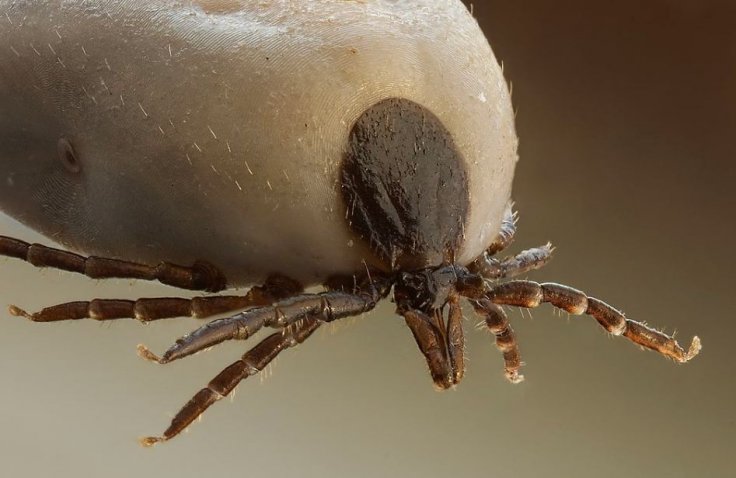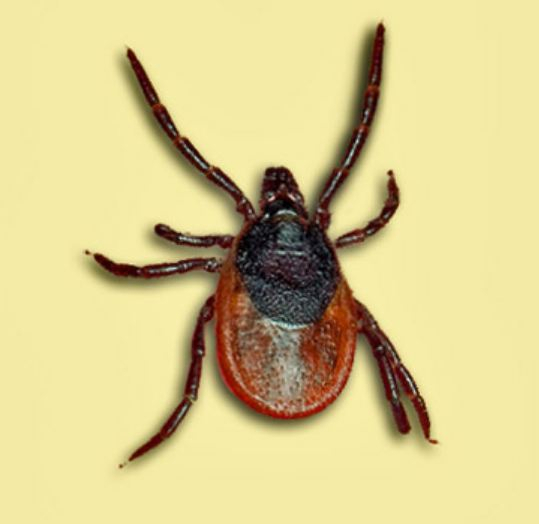As Russia battles the worsening coronavirus situation within its borders, a new health scare has gripped several regions of the country — an invasion of "mutant" ticks. Several regions in the country such as Krasnoyarsk, Sverdlovsk, and Novosibirsk, have reported thousands of cases of tick bites, with some of the regions lacking the necessary medication to treat patients.
The reported cases have been attributed to not only to the blood-thirsty species that are endemic to the region, but also to a new hybrid variety that is "abnormally active". A report by Zvezda, the newspaper of Russia's Defense Ministry, stated: "Mutant ticks are attacking - this is not a tabloid headline but a fact."
Hosts of Deadly Pathogens

Ticks belong to a group of organisms known as "Arachnida", which includes mites, spiders, and scorpions. They are external parasites (i.e) they feed on the blood of other animals for sustenance and live off a wide range of animals such as mammals, reptiles, and birds.
The parasitic arachnids are known to carry several disease-causing pathogens such as various types of bacteria, protozoa and viruses. Both humans and animals can be affected by the diseases that the microorganisms harbor. Some of the lethal tick-borne diseases are Lyme diseases, typhus and meningoencephalitis.
A Deadly 'Mutant' Variety
What is concerning about the new "mutant" or hybrid variant is that it possesses the damage-inducing characteristics of two commonly found Russian varieties — the taiga tick (Ixodes persulcatus) and the Far Eastern tick.
Dr Nina Tikhunova, of the Institute of Chemical Biology and Fundamental Medicine, Novosibirsk, said that a "large number inter-species hybrids" with the ability to produce "fertile offspring" have overrun the regions of Novosibirsk and Tomsk.

She added that the hybrid can carry "infectious agents associated with both parent species", and are hurting people with bites that are painfully unpleasant. People are attacked in both short and long grass.
Several Regions Affected
The "invasion" by swarms of mutated ticks has affected several regions of Siberia, with some being crippled by it. Fear of Lyme disease and other tick caused illnesses that lead to inflammation of the brain has gripped the Krasnoyarsk region in Siberia. Here, the number of ticks has been found to be 428 times the normal amount.
So far, 8,215 tick bites have been reported in the region, of which 2,125 cases were related to children. In the suburbs of the city, the population of ticks stands at 214 ticks per square km —which is a far cry from the accepted "safe" figure of 0.5.
In the Siberian city of Novosibirsk, the number of people seeking medical assistance after being bitten by unusually agile ticks has witnessed an increase of 150 per cent. At least 22 people have been admitted to the hospital on suspicion of having contracted encephalitis.

Also, 17,242 people have been reported bitten by ticks in the Sverdlovsk region in the Ural Mountains. Of these, 4,334 are said to be children, and the rate of Lyme disease found among all the affected people stands at 36 per cent. A major reason behind the spike in numbers is said to be a mild winter.
Healthcare Infrastructure Under-Equipped
Interestingly, the rise in the number of reported tick bites comes at a time when the country has recently been under lockdown due to the coronavirus pandemic. With the healthcare infrastructure already burdened by the viral outbreak, the tick "invasion" only complicates the situation.
Several cities have stated that they lack reserves of immunoglobulin (IG) or antibody, that is vital in the treatment of tick-caused ailments. The antibody must be administered within four days of a bite to prevent further deterioration of the patient's condition.
A few cities reportedly possess stocks that are sufficient only to treat children. The region of Khabarovsk stated that its supply of the crucial encephalitis vaccine and immunoglobulin has been exhausted. With the availability of new supplies expected only in July, people have been urged to remain indoors as a precaution.








